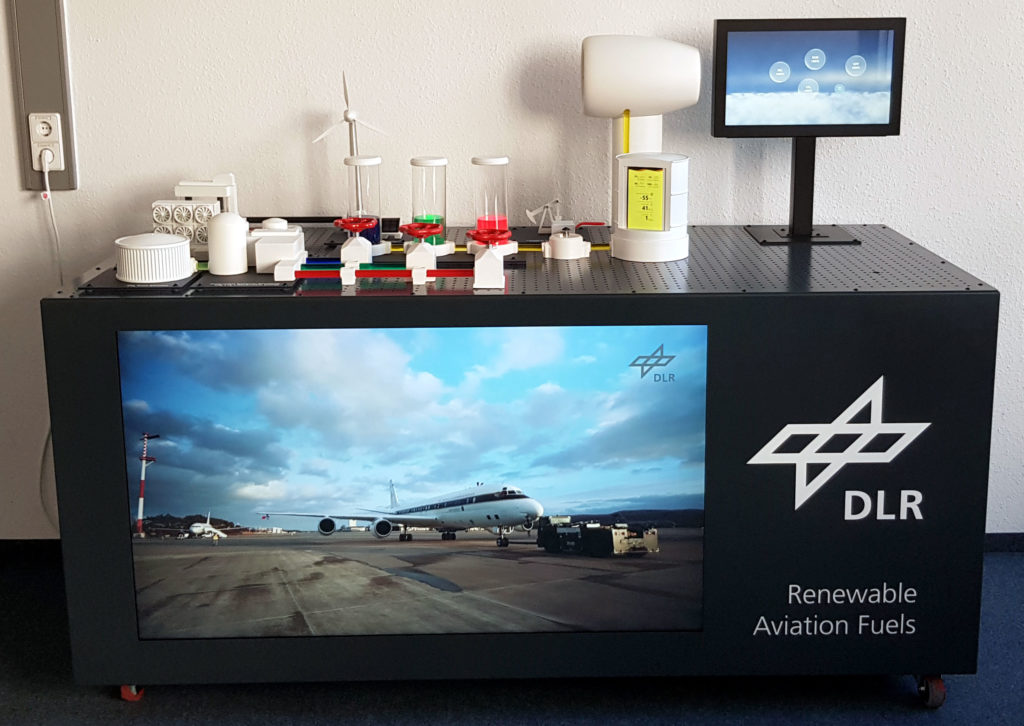Sustainable aviation fuels for climate-neutral air transport
Power-based fuels are indispensable for sustainable aviation. Particularly on medium- and long-haul routes, there are currently no technological alternatives to liquid fuels. At the same time, a large part of the harmful climate and environmental impact of air transport occurs on these routes. Power-based fuels (Power-to-Liquid, PtL) are produced using energy from renewable sources, water and carbon dioxide. The carbon dioxide comes, for example, from biomass or from the ambient air (Direct Air Capture: DAC). The water is split into hydrogen and oxygen by means of electrolysis. In a subsequent synthesis process, the hydrogen is transformed together with carbon dioxide into a liquid fuel.
In addition to avoiding carbon dioxide emissions, PtL fuels offer further advantages. Their composition can be adjusted with targeted fuel design so that significantly fewer pollutants such as soot are produced. The cirrus clouds caused by soot particles contribute significantly to the climate impact of air transport. Intelligent fuel design leads to fewer pollutants. The climate impact of air transport decreases, while at the same time local air quality at airports is improved.
For approval as aviation fuel, it is necessary not only to keep pollutant emissions as low as possible, but also to adjust numerous other properties such as the freezing point so that they comply with the internationally applicable limits.
Together with partners from industry, research and other DLR institutes and facilities, the DLR Institute of Combustion Technology is working to transfer the manufacturing processes from the laboratory – with the help of demonstration and pilot plants – to an industrial scale. This is an important step towards making the technology fit for industrial use and being able to produce the large quantities required.
Webnews:
German Aerospace Center (DLR)
Institute of Combustion Technology
Dr. Christoph Arndt | Email christoph.arndt@dlr.de
